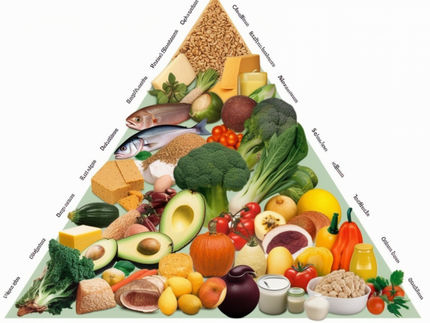1.4% less turnover: food industry struggles with further decline
Falling demand in Germany and abroad, investments stagnating
Advertisement
Real turnover in the German food industry fell by 1.4% in the first half of 2024. Following the loss-making year of 2023, German food manufacturers thus also recorded a further decline in the following half-year. While price-adjusted turnover in Germany fell by 1.1%, the decline abroad was even greater at 1.6%.

Symbol image
computer generated picture
In nominal figures, the industry generated a total of EUR 114.5 billion between January and June 2024, compared to EUR 116.1 billion in the same period of the previous year, which corresponds to a decline of 1.4%. In Germany, turnover totaled EUR 73.7 billion, which corresponds to a decline of 1.7% compared to the same period last year. Turnover abroad fell by 0.8% and amounted to 40.7 billion euros. While domestic sales prices in the food industry fell slightly by 0.6%, they rose slightly abroad by 0.7%. The foreign share of sales thus amounted to 35.6 percent.
Slight relief for raw material prices
The producer price indices for agricultural products fell slightly compared to the first half of the previous year and are 1.9% lower. While prices for animal products fell by 4.7% compared to the same period last year, prices for plant products rose by 2.4%. Prices for table potatoes (up 44.6%), vegetables (up 28.8%) and eggs (up 9.1%) rose particularly sharply. In contrast, prices for cereals (down 22.5%), poultry (down 9.7%) and milk (down 6.6%) fell. Compared to the pre-crisis level (beginning of 2020), the sub-index for plant-based products rose by a good 40%, significantly more than the sub-index for animal products (just under 30%), which underlines the continued high price level.
Sentiment in the German food industry
The ifo Business Climate Index for the food industry was very volatile in the first half of 2024. Compared to the same period last year, the business climate improved slightly, but at an average of 99.3 points was still just below the neutral mark of 100. With an average score of 101.1 points, the current business situation was rated slightly better than business expectations for the next six months. Expectations for sales prices over the next three months also rose and remained in positive territory across the board. At the end of the first half of the year, however, there was also a negative trend in employment expectations, which were still positive at the beginning of the year.
"The ongoing economic downturn in the food industry is alarming. We urgently need to take countermeasures before the innovative strength and competitiveness of our companies are seriously jeopardized," warns Christoph Minhoff, Managing Director of the Federation of German Food and Drink Industries (BVE).
Bureaucracy, location factors & productivity
Although the number of employees has risen slightly in recent years, the price-adjusted turnover of the German food industry has been declining for some time. This could indicate declining productivity, as more and more workers are needed to generate a shrinking price-adjusted turnover. One possible reason for this could be the increase in bureaucratic burdens. In its most recent annual report, the German Regulatory Control Council stated that "the bureaucratic burden remains extremely high". In addition, the ongoing economic uncertainty is leading to many necessary investments being postponed.
"The growing bureaucracy is a considerable burden on the competitiveness of our companies. We urgently need to reduce the administrative burden so that innovations and investments are not further slowed down," said Minhoff.
Almost 6,000 companies in the food industry generate an annual turnover of 232.6 billion euros. With around 644,000 employees, this sector is the fourth largest industry in Germany. The sector is characterized by small and medium-sized enterprises: 90 percent of companies in the German food industry are SMEs. The export quota of 35 percent shows that customers all over the world appreciate the quality of German food.
Note: This article has been translated using a computer system without human intervention. LUMITOS offers these automatic translations to present a wider range of current news. Since this article has been translated with automatic translation, it is possible that it contains errors in vocabulary, syntax or grammar. The original article in German can be found here.



























































